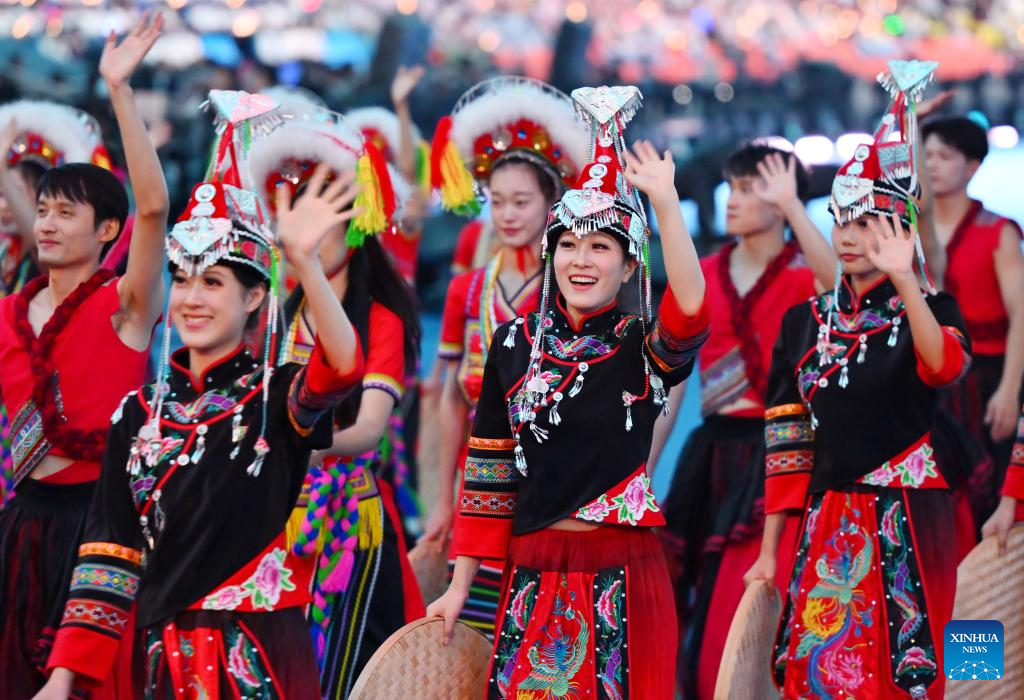
 0 Comment(s)
0 Comment(s) Print
Print E-mail China Daily, November 23, 2024
E-mail China Daily, November 23, 2024

Artists perform during the opening ceremony of the 12th National Traditional Games of Ethnic Minorities of the People's Republic of China in Sanya, south China's Hainan Province, Nov. 22, 2024. (Xinhua/Chen Zeguo)
The 12th National Traditional Games of Ethnic Minorities of the People's Republic of China is about much more than competition and finishing top, it is a unique platform to boost understandings and unity among people from different ethnic groups, participants of the games said as it opened in Sanya, Hainan province, on Friday night.
Wang Huning, a member of the Standing Committee of the Political Bureau of the Communist Party of China Central Committee and chairman of the 14th National Committee of the Chinese People's Political Consultative Conference, China's top political advisory body, announced the opening of the games.
The splendid opening ceremony of the games featured cultures of people from China's 56 ethnic groups, showcasing that they are all equal members of the community for the Chinese nation.
The games will take place through Nov 30, with approximately 10,000 athletes from 29 delegations from all over China gathering on the tropical island to compete in 149 events under 18 sports and 170 exhibition events. As a unique feature, a grand party will be held on Tuesday for participants to showcase their different traditions and cultural heritages.
Tian Shifang, a coach at the Ethnic Sports School of Xiangxi, Hunan province, said the games can significantly enhance communication and unity among the different ethnic groups.
"Also, it's great to see ethnic sports continue to thrive and gain popularity in China, which has attached great importance to preserving ethnic cultures of different ethnic groups. By regularly holding these games and formulating modern sets of rules, it has been possible for numerous endangered traditional ethnic sports to regain vitality," Tian said.
Ding Xisong, deputy head of the Beijing delegation, said that unlike other multisport events, finishing top is never the main goal of these games.
"The charm of the games is to bring people from different ethnic groups together and boost understandings of each other during the competitions," Ding said.
Beginning with less than 400 athletes from 13 ethnic groups, the event was first launched in 1953 with only eight sports. It's one of China's oldest national multisport games.
Unlike traditional sporting events, the games feature competitions rooted in traditional customs and the daily life of people from different ethnic groups in China. One highlight of the games this time is the debut of the coconut tree climbing race, inspired by the daily lives of the Li and Miao ethnic groups in Hainan, who historically climbed coconut trees during harvesting.
The swing competition, which is exclusive to female athletes, hails from the Korean ethnic group in northeast China and aims to empower women by encouraging them to broaden their horizons through sport.